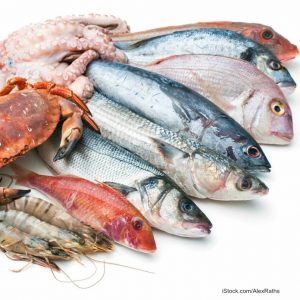In June 2014, the White House announced a Presidential Task Force on Combating Illegal, Unreported and Unregulated Fishing and Seafood Fraud and asked for comments from the public to develop recommendations. Oceana, one of the groups commenting on the proposal, has long advocated for traceability to help combat seafood fraud.
 That fraud consists of mislabeling and deliberately misnaming seafood in order to receive a higher price for the product in the marketplace. Some facilities substitute lesser quality species for more desirable fish, which can lead to allergic reactions and other health problems. Some of the species substituted for higher quality fish are higher in heavy metals such as mercury, which can cause serious illness. When farmed fish are substituted for wild-caught species, antibiotic residues are often in those products.
That fraud consists of mislabeling and deliberately misnaming seafood in order to receive a higher price for the product in the marketplace. Some facilities substitute lesser quality species for more desirable fish, which can lead to allergic reactions and other health problems. Some of the species substituted for higher quality fish are higher in heavy metals such as mercury, which can cause serious illness. When farmed fish are substituted for wild-caught species, antibiotic residues are often in those products.
Oceana released a study last year that found more than 30% of the seafood samples obtained in supermarkets and other stores was mislabeled. Between 20 and 43% of wild-caught seafood imported into the United States comes from “illegal, unrelated and unreported or ‘pirate’ fishing.”
Other groups submitting comments included Johns Hopkins Center for a Livable Future, the American Public Health Association, the Center or Food Safety, Center for Science in the Public Interest, Food & Water Watch, and Consumer Federation of America.
At least 80% of the seafood in the U.S. is imported. But the FDA inspects less than 2% of those imported products. In addition to problems with species substitution and economic loss, concerned groups say that illegal fishing and fraud threatens vulnerable fish stocks around the world.




